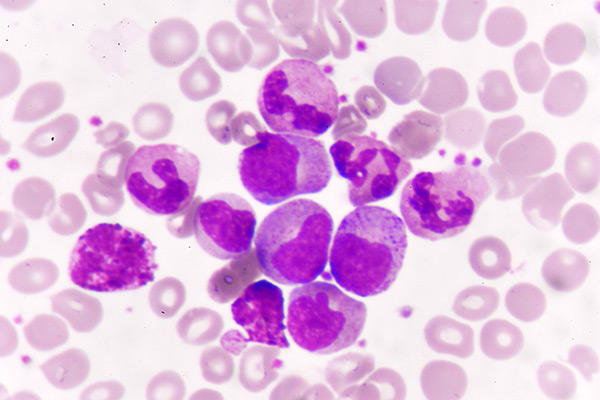Being healthy is indeed a blessing. Many people do not realise that their current lifestyle will have a great effect on their future’s health. Many people take things lightly when associated with health. Unfortunately, some people may get sick even if they already tried their best to maintain their health. One of the conditions that may occur to anyone despite having already done their best for their health is monocytosis. In this DoctorOnCall’s article, we will learn more on monocytosis.
Before discussing monocytosis, it would be better to know a bit more on monocyte as it is associated with monocytosis. Monocytes are a type of cells in the blood, specifically the white blood cells. When we talk about white blood cells, it certainly plays a role in the immunity system to fight against infection. Monocytes are produced in the bone marrow. It then travelled through the bloodstream to perform its duty of eliminating pathogens that cause infection. Monocytes are known as phagocytic cells which means it fights infection by “eating” the pathogen. As monocytes travel to targeted organs or tissue, it is converted to other kinds of cells known as macrophage. Some monocytes may become dendritic cells instead.
Monocytosis is defined as monocytes higher than the normal range. The normal absolute monocyte count ranges in adults between 0.2-0.8 x 109/L. The normal absolute monocytes range between 1 to 10% of the white blood cells in the body. It is worth noting that these values can vary with age and sex. The range may also be varied according to the laboratory that processes the blood sample. The absolute monocytes count can be calculated by multiplying the total number of white blood cells in the body against the percentage of monocytes.
One of the concerns with monocytosis is the disease associated with the condition. Does monocytosis mean leukaemia? Not necessarily. There are many more causes or diseases that can cause monocytosis. Below are list of all possible causes or diseases with presented monocytosis:
- Bone marrow recovery
- Infections such as tuberculosis and syphilis
- Heart diseases such as myocardial infarction
- Rheumatoid conditions such as rheumatoid arthritis
- Blood disorder such as polycythemia vera
- Autoimmune condition such as systemic lupus erythematosus (SLE)
- Medication
- Malignancies
Apart from what is previously listed, monocytosis may be caused by exercise especially after a high-intensity exercise. Monocytosis may also occur in those in stressful situations or states. Smoking may even cause monocytosis.
Since there are many conditions that can cause monocytosis, to only rely on blood test results is certainly insufficient to diagnose a disease. It is common for doctors to repeat blood tests with new blood samples to confirm that monocytosis is indeed true. Repeating blood tests is highly possible in those without obvious causes or history of monocytosis. This is because monocytosis can easily happen even in daily life conditions such as stress or exercise. Thus, it is wise to repeat blood tests to get the accurate monocyte count.
When it is confirmed that monocytosis is present, doctors will evaluate other blood profiles or components as stated in the blood test results. They may also ask for further tests on the blood such as peripheral blood smear. Additional tests such as imaging tests, echocardiography, blood culture, serologic testing and biopsy, are only among the many tests requested by the doctor. These tests will be requested based on possible causes to help identify the exact cause. Treatments are provided based on the identifiable cause. The outcome from monocytosis ranges from good to bad based on the medical conditions.
Monocytosis is often a sign of an underlying medical condition. To prevent one from monocytosis, is to improve the immune system besides focusing on managing known medical conditions. There are many things that can be done to boost the immune system such as practising a healthy eating habit by eating more food with antioxidants that help strengthen the immune system and avoiding food that can cause inflammation such as fatty meals and refined carbohydrates. Immune system can also be boosted by regular exercise and getting enough rest. It is important to get a good night’s sleep to better regulate the immune system. Immune system can greatly be affected by stress. Thus, learning how to cope with stress and practising mindfulness not only improve the immune system but also the mind. Practising hand hygiene and keeping distance with sick people can minimise risk for infection that may harm the immune system.
It can be concluded that monocytosis is a condition that describes the high monocyte count. There are many diseases or situations that can cause monocytosis. Certainly, monocytosis does not directly mean leukaemia. Blood test is the way to know the monocyte count. Additional tests may be requested by the doctor to help in confirming diagnosis. The right diagnosis can help doctors provide the proper treatment or advice on how to live and heal from the disease.






